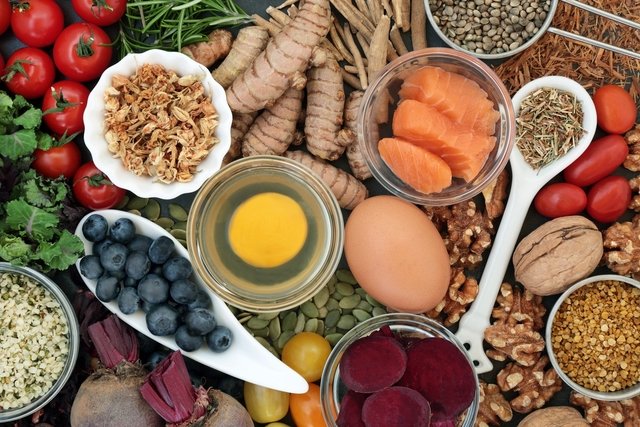Some foods, such as dark chocolate, coffee and green tea, are great options for improving memory and reasoning, because they are rich in bioactive compounds such as caffeine, theobromine and catechins, which have a stimulating action and improve brain oxygenation.
Furthermore, foods rich in omega 3, such as pumpkin seeds and salmon, have antioxidant and anti-inflammatory properties, which improve the functions of neurons and protect brain cells against damage caused by free radicals, improving memory.
See nutritionist Tatiana Zanin for some tips on eating to improve memory and concentration:
1. Salmon
Salmon is a fish rich in omega 3, a healthy fat with antioxidant and anti-inflammatory action, which improves the functions of neurons and protects brain cells against free radicals, improving memory and reasoning. See how to increase your omega 3 intake.
2. Dark chocolate
Dark chocolate, preferably with at least 70% cocoa, is rich in theobromine, catechins and epicatechins, which are bioactive compounds with antioxidant and vasodilatory action, improving blood circulation in the brain and stimulating cognitive function and memory.
3. Nuts
Walnuts are great memory foods because they are sources of alpha-linolenic fatty acid, an omega-3 type that has been associated with improving artery health, preventing inflammation and improving blood circulation in the brain.
In addition, walnuts also contain vitamin E, a vitamin with high antioxidant power that prevents the aging of healthy brain cells, preventing forgetfulness. See other health benefits of nuts.
4 eggs
The egg is rich in choline, a vitamin that participates in the formation of acetylcholine, a neurotransmitter that is important for brain functions, improving memory and the learning process. Learn how to increase your choline intake in your diet.
5. Spinach
Spinach is rich in vitamin K, an essential vitamin in the production of sphingolipids, a type of fat found in high concentrations in the brain and which is related to better cognition and memory.
In addition, spinach and other dark green foods, such as broccoli and arugula, also contain vitamin C and beta-carotene, nutrients with antioxidant properties that prevent damage caused by free radicals in the brain.
6. Café
Coffee is a good food for memory as it is rich in caffeine, a bioactive compound that acts on the nervous system, stimulating concentration and reducing tiredness. See other foods rich in caffeine.
7. Pumpkin Seeds
Because they are rich in omega 3, pumpkin seeds are great for memory, as they help fight excess free radicals, protecting healthy brain cells.
Furthermore, pumpkin seeds are also rich in zinc, a mineral that participates in maintaining cognitive functions, improving the learning process.
8. Tomato
Tomato is a source of lycopene, a carotenoid with antioxidant and anti-inflammatory action that protects brain cells against damage caused by free radicals, preventing memory loss.
9. Green tea
Because it is rich in catechins and flavonoids, which are bioactive compounds with antioxidant action, green tea helps fight free radicals in the brain, improving memory.
Furthermore, green tea contains good amounts of caffeine, a bioactive compound that acts on the nervous system, stimulating concentration.
10. Beetroot
Beetroot is rich in nitrates, substances that promote the relaxation of blood vessels, facilitating blood circulation and improving the arrival of oxygen to the brain, making it a good option for improving memory.
11. Red fruits
Red fruits, especially the darker ones, such as purple grapes, açaí, blackberries and blueberries, are great sources of anthocyanins, vitamin C and lycopene, antioxidant and anti-inflammatory compounds that improve brain oxygenation and protect the cells of the nervous system, improving memory.
12. Oats
As it is a source of fiber and carbohydrates, oats gradually provide glucose to the body, which is the fundamental nutrient for maintaining brain energy throughout the day, making it a great option for improving memory.
Furthermore, oats are also rich in magnesium, a mineral that participates in the transmission of nerve impulses in the brain, improving memory and cognitive function.
Online memory test
To check how your memory is, take the test below. You have 1 minute to observe the image and memorize as many details as you can:
Other tips to improve memory
Some tips that can also help improve memory in everyday life are:
- Do memory exercises, such as reading books and practicing sudoku, word searches or crosswords. See other exercises that also help with memory;
- Practice physical exercises regularly, as they stimulate blood circulation, improving brain oxygenation, in addition to stimulating connections between neurons;
- Get a good night’s sleep, sleeping between 7 and 9 hours a night, as during sleep the brain processes new experiences and consolidates memories of the day.
Furthermore, some teas such as ginkgo biloba, saffron and rosemary also have antioxidant and stimulant properties that improve brain health, making them great options for home remedies to improve memory. Discover other home remedies that are good for memory.

Sign up for our newsletter and stay up to date with exclusive news
that can transform your routine!
Warning: Undefined array key "title" in /home/storelat/public_html/wp-content/plugins/link-whisper-premium/templates/frontend/related-posts.php on line 12
Warning: Undefined array key "title_tag" in /home/storelat/public_html/wp-content/plugins/link-whisper-premium/templates/frontend/related-posts.php on line 13




